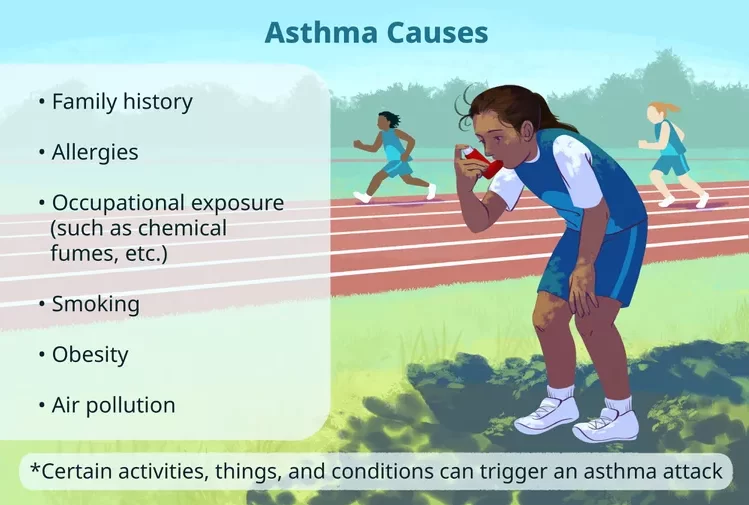Asthma, a chronic respiratory condition, affects millions of people worldwide. It is a condition that causes inflammation and narrowing of the airways, leading to difficulty in breathing. While asthma can be a serious and sometimes life-threatening condition, it does not necessarily mean that it always leads to death. In this article, we will explore the question, “Does asthma kill?” and shed light on the realities of living with this condition.
Understanding that Asthma Is Manageable.
First and foremost, it is essential to understand that asthma is a manageable condition. With proper treatment and care, individuals with asthma can lead normal and fulfilling lives. Medications such as inhalers and oral medications help control symptoms and reduce the risk of severe asthma attacks. It is crucial for individuals with asthma to work closely with their healthcare providers to develop an effective asthma management plan.
Asthma attacks can be frightening and may require immediate medical attention. During an asthma attack, the airways become inflamed and narrow, making it difficult for air to pass through. Symptoms of an asthma attack include wheezing, coughing, shortness of breath, and chest tightness. It is important to recognize these symptoms and seek medical help promptly. If left untreated, severe asthma attacks can be life-threatening.
Asthma attack can be dangerous, watch out.
While asthma attacks can be dangerous, it is rare for asthma to directly cause death. According to the Centers for Disease Control and Prevention (CDC), asthma-related deaths have been decreasing over the years. However, it is vital to note that asthma can increase the risk of complications and contribute to other health problems. For example, individuals with asthma have a higher risk of developing respiratory infections such as pneumonia, which can be life-threatening, especially in vulnerable populations like the elderly or those with weakened immune systems. Kindly check this out on how to improve the weakened immune systems as this is very vital information that you needed.
Minimizing the risk of Asthma
To minimize the risk of asthma-related complications, it is crucial to manage the condition effectively. This includes following the prescribed treatment plan, taking medications as directed, and avoiding triggers that can worsen asthma symptoms. Common triggers include allergens such as pollen, dust mites, and pet dander, as well as irritants like cigarette smoke and air pollution.
Proper asthma management also involves regular check-ups with healthcare providers. These check-ups allow for the evaluation of asthma control and adjustment of treatment if necessary. It is essential to communicate any changes in symptoms or concerns to the healthcare provider to ensure timely intervention.
Education and awareness about asthma are key to preventing severe asthma attacks and complications. Individuals with asthma should learn to recognize their triggers and take steps to avoid them. They should also be familiar with the correct use of their medications, including inhalers, to ensure maximum effectiveness.
Conclusion
In conclusion, asthma is a chronic condition that can be managed effectively with proper care. While asthma attacks can be severe and require immediate medical attention, asthma-related deaths are rare. By working closely with healthcare providers, following treatment plans, and being proactive in managing the condition, individuals with asthma can lead healthy and fulfilling lives. It is essential to raise awareness about asthma and provide support to those living with this condition to ensure their well-being.

